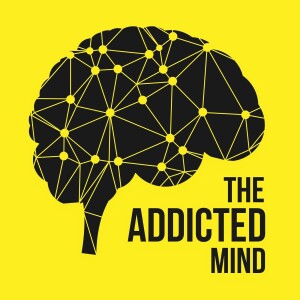
90: The Narcissist In Your Life: Recognizing the Patterns and Learning to Break Free with Julie Hall
 2020-03-12
2020-03-12
Today, our guest is Julie Hall. Julie is the author of The Narcissist In Your Life: Recognizing the Patterns and Learning to Break Free, which was released in December 2019. In today's episode, she will be talking to us about what narcissism is and what it's like growing up with a narcissistic parent or parents.
Julie comes from a narcissistic family, so she describes herself as a survivor. She is an educational writer, poet, and journalist. While working on her memoirs, she came to realize that narcissism had been a major theme throughout her life, so she shifted gears and began to write specifically about narcissism. This became part of Julie's healing process.
Episode link>>>>www.theaddictedmind.com/90
Julie has a popular blog called The Narcissist Family Files, and you can find the articles that she writes regularly in Psychology Today. She also has articles in The HuffPost and various other places on the internet.
Narcissism is a personality disorder and there has been a lot of talk about it recently. Julie's book is about narcissistic personality disorder and how it affects the people close to the person with the disorder.
Everyone has a level of healthy narcissism, in that we all see things through our lens to some degree. The narcissist, however, has pathological levels of self-involvement and he or she experiences fundamental developmental deficits, early on in life.
In a family in which one or both of the parents are narcissistic, the family is structured in such a way that the needs of the children are secondary to the needs of the parents.
With narcissists, there's an underlying sense of profound vulnerability, shame, inferiority, and worthlessness. Narcissism is a defensive coping structure and children who develop this kind of coping structure tend to repress their feelings of vulnerability and shame and they build an exterior persona to mask their overwhelming feelings. They develop a false grandiose and superior personality, often becoming domineering and competitive. They are out of touch with their inner, emotional world and so they don't actively engage with people on an emotional level.
The narcissistic personality avoids self-reflection at all costs and it learns to mimic certain behaviors that look like intimacy. Narcissists tend to see themselves and others as either worthless or wonderful. When they see themselves (or others) as perfect, they need to stay that way in order not to feel worthless. They seem to be in a state that is disconnected from other people.
A major loss could sometime cause narcissists to look for help. This can be difficult for them and their process of recovery takes a long time, possibly seven to ten years.
It's devastating to be around a narcissist regularly. Especially for children, who suffer from a lot of pain, confusion, and complex trauma as a result.
Addiction is a part of the narcissistic family system. As well as a pattern of depression, anger, confusion, family rifts, and alienation, with no awareness of what the core issue is, or naming the personality disorder that is driving the dysfunction within the family system.
Denial is a big obstacle for the children of narcissists to overcome. They tend to move through all the stages of grief for a very long time.
The therapists who can best help the children of narcissists have usually gone through the same kind of experience themselves, like children.
Becoming educated about narcissism is very important for people who grew up with narcissistic parents. It's very easy to do today because there is so much information available.
Links and Resources:
Julie's website and blog: www.narcissistfamilyfiles.com
Books Mentioned:
The Narcissist In Your Life, Recognizing the Patterns and Learning to Break Free by Julie Hall
The Narcissistic Family:Diagnosis and Treatment by Robert M. Pressman and Stephanie Donaldson-Pressman
More Episodes
 2020-02-20
2020-02-20
 2020-01-09
2020-01-09
Create your
podcast in
minutes
- Full-featured podcast site
- Unlimited storage and bandwidth
- Comprehensive podcast stats
- Distribute to Apple Podcasts, Spotify, and more
- Make money with your podcast
It is Free
- Privacy Policy
- Cookie Policy
- Terms of Use
- Consent Preferences
- Copyright © 2015-2024 Podbean.com





